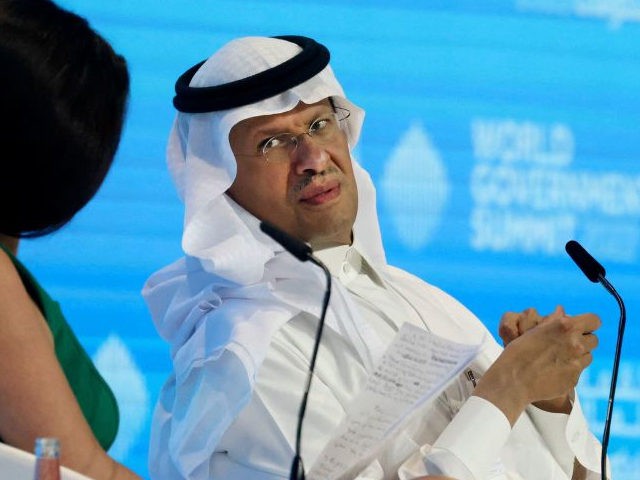Saudi Arabia and Russia, both members of the OPEC+ oil cartel and the two largest oil exporters in the world, announced deeper production cuts on Monday to push worldwide market prices higher. The cuts added up to a 1.5-percent reduction in the global supply of oil.
Saudi Arabia unilaterally reduced its production by one million barrels per day (bpd) in June, a move that generated much controversy at the June 4 meeting of OPEC+ when it was announced.
The cartel was generally in favor of keeping its production quotas from October in place, but the Saudis decided to “ice the cake” with a massive “voluntary” reduction. Saudi Energy Minister Prince Abdulaziz bin Salman described the cut as a “Saudi lollipop” that would make the grumpy OPEC+ alliance happy when they saw how it nudged prices upward and increased profits.
One reason for OPEC’s ill temper was that Russia keeps ignoring its own quota agreements to cut production and drive up prices whenever it sees fit.
The Saudis reportedly talked Moscow into stabilizing production. When Saudi Arabia decided on Monday to extend its million-bpd cut until the end of August, Russia quickly announced a 500,000 bpd cut of its own. Oil prices immediately rose by almost 90 cents a barrel.
The far-left New York Times (NYT) quoted analysts who said the Saudi and Russian production cuts “appear to have been coordinated and intended to create the impression that Russia, which co-chairs OPEC Plus, remains committed to the group’s efforts to manage the market.”
Some of those analysts predicted Russia might not go ahead with the full 500,000 bpd cut it announced, because “Moscow has been reluctant to sacrifice revenue that could be used to help finance the war in Ukraine,” and it has plenty of eager buyers for discounted oil in India and China.
Meanwhile, Saudi Arabia is hungry for cash to finance its ambitious program to diversify its economy away from dependence on oil revenues. The diversification plan was announced by Crown Prince Mohammed bin Salman in 2016. Energy Minister Abdulaziz bin Salman, the crown prince’s half-brother, is a major booster of the plan.
Saudi state media said the production cut was extended to shore up worldwide prices in the face of reduced demand from China. The Chinese economy is faltering after a strong start in the first quarter of 2023, and its demand for oil is tapering off accordingly after hitting record highs in the spring.
Other factors suggested by foreign analysts for the Saudi production cut were apprehension about the proliferation of electric vehicles (EV) and expectations that oil demand will slide further as various governments raise interest rates.
“Consuming nations like the US have railed against the Organization of Petroleum Exporting Countries and its allies for their policy of constricting supplies, accusing the cartel of exacerbating inflation and endangering a fragile economic recovery. The International Energy Agency has condemned the group for laying “siege” to vulnerable consumers,” Bloomberg News noted on Monday.

COMMENTS
Please let us know if you're having issues with commenting.